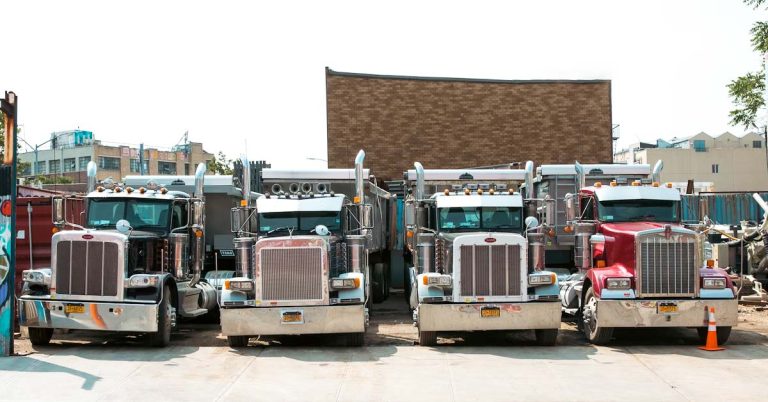Retail arbitrage may seem like a big word, but the concept of products you can buy cheap and sell high should be easy to understand.
- Inbox Dollars - Get paid to check your email. $5 bonus just for signing up!
- Survey Junkie - The #1 survey site that doesn't suck. Short surveys, high payouts, simply the best.
- Nielsen - Download their app and get paid $50!
Quite simply, you purchase a product, either online or at a physical store. You can then sell it at a higher price and keep the profit.
The best thing about retail arbitrage is that there are millions of products you can buy and sell at any given time.
Competing with another individual seller or company trading in the exact set of products as you are is highly unlikely unless you intentionally copy their inventory, or they copy yours.
Thus, there’s a huge potential to succeed in a business model where you buy cheap and sell high. Of course, your success depends largely on the products you choose, the stores where you source your products, and the method you follow.
In today’s article, you’re going to learn about how to get started with retail arbitrage, the best stores to buy your products, and the best products to buy cheap and sell high.
How to Get Started in Retail Arbitrage
Retail arbitrage is just as alive as it was when it first became huge on eBay more than a decade ago.
People have been using this technique to build a real, profitable home-based business, thanks to buying wholesale-priced items and then flipping them with retail pricing. It’s totally legit and effective, so what’s stopping you from getting started in retail arbitrage?
It all boils down to the following:
- What products can I buy for cheap and resell for a higher price?
- Where do I find these low-priced products?
- Where do I sell them?
If you are just getting started, be sure to read my guide on how to become an Amazon seller to learn the basics.
The 30 Best Products To Buy Cheap and Sell High
Before we begin, head to Amazon’s Movers & Shakers page.
You’ll find what’s currently trending to help give you an idea of what products to buy and sell on your store.
Here are the best categories and products to start your retail arbitrage journey.
Fashion Minded
1. Jewelry – Whether you go for a wholesale lot of jewelry, or specific branded jewelry, this category is highly diverse. There are many different types (e.g., earrings, necklaces, bracelets, rings, anklets, belly rings, cufflinks, pins, etc.) made with many different materials (e.g., gold, silver, rhinestones, gemstones, shells, beads, etc.) to cater to many different customers.
2. Sunglasses – eBay store intouchwithstyle sells bulk lots of sunglasses, starting at 10 pairs for only $20. You get to save more as you buy more pairs. Similar to jewelry, the diversity of sunglasses can be astounding, from the different styles to the materials.
3. Shoes and socks – For shoe collectors and enthusiasts, there can be no such thing as having too many shoes. You can sell anything from casual shoes to sports or hiking shoes and still make bank with the products. While you’re at it, you can also sell socks and earn even more from upselling.
4. Sleepwear and underwear – Silk pajamas are the cream of the crop as far as sleepwear, but they’re always super expensive. Go straight to manufacturers like Golden Eagle Home Textile and sell your customers’ sleepwear that are lower in price but are still high-quality.
5. Lingerie and shapewear – Shapewear remains one of the most sought-after products in the past few years and this industry will continue to grow for the foreseeable future. Find a Spanx copycat, or the manufacturers of these best-selling shapewear and sell them for profit.
6. Activewear – If you have to pick just one type of clothing, go with women’s leggings; they’re super popular and easy to sell. Another type of activewear that you can sell is sports bras. Sports bras are no longer just workout attire nowadays.
For the Tech Savvy
7. Smartwatches – Wearable technology has been on the rise in recent years, with plenty of new features and new manufacturers. Smartwatches are now a billion-dollar market, and finding the right supplier is the key to getting the maximum profits from your product sales.
8. Video games – Gamers are some of the most bargain-hunting, window-shopping buyers out there. They spend a lot on video games but are smart about shopping for them. If you’re interested in selling video games, be smart with the niche you want to enter because although video games offer huge profit margins, there’s plenty of competition in this field.
9. Phone accessories – The demand for phone accessories will never wane as long as new phone models get launched every year. As a reseller, you’d go crazy with low-priced items at wholesalers like Reiko Wireless Inc.
10. USB charging dock – When you have various gadgets at home that you need to charge, having a charging dock that can charge multiple devices at the same time is a game-changer. Sink your teeth into a billion-dollar market.
No joke. Here are the fastest ways to make easy money online. Click here to see how.
11. Security cameras – DIY home security, including security cameras, nanny cams, smart doorbells with cameras, surveillance equipment, motion detectors, and alarms, is a steadily growing field.
12. Drones – Drones are far from being toys for bored teens; they have found applications in various industries, from film to law enforcement, and even agriculture. In addition to the drones themselves, you can also buy and sell drone accessories, such as spare batteries, landing pads, bags, spare parts, and other accessories.
Don’t Ignore Your Family
13. Kids’ toys – In between Christmas and birthdays, toys for kids are always in demand. As an e-commerce store, you can either sell by age, by interest, or by product price (for example, you can market your online store as a $10-dollar toy store). Check out Aquarius Entertainment Merchandising, Inc. for inspiration.
14. Kids’ formal wear – The best thing about selling babies’ and kids’ clothes is that they can be bought in bulk for pretty cheap. Formal wear for kids often have higher quality, so you can easily sell these items at a higher price point without customers feeling ripped off.
15. Pet clothes and toys – Selling pet clothes and toys are specialty niches that you should explore. People with fur babies buy almost as much merchandise as parents of actual babies.
16. Pet Care Supplies – If you decide to sell pet clothes, toys, and accessories, why not go further and add care supplies as well? Grooming tools, clippers, blades, shampoo, and a whole lot more. You can get plenty of discounts from wholesale suppliers like Pet Edge or Inspirer Pet.
Around the House
17. Beauty products – Exploring this niche can be overwhelming – there are tons of pampering product categories from hair care to skincare, vitamins and health supplements, and a whole lot more. Go all out with a beauty product general store or find a sub-niche where you can sell specialty products, such as organic hair care products.
18. Men’s grooming and skincare products – In recent years, skincare and men’s grooming have grown in popularity. Skincare is traditionally a female-dominated category, but beauty brands have now tapped into the male market and started creating products especially formulated and marketed to men.
Products like body washes, shaving kits, beard-trimming kits, cologne, and other grooming products for men are also gaining in popularity, not just during peak gift-giving holidays like Father’s Day and Christmas, but all year round.
19. Candles and essential oils – While candles are the go-to gift for Christmas office parties and Secret Santas, essential oils are the holy grail of gift-giving. Check out the latest at Gem Candles or in-demand aromatherapy oils.
Stay Fit and Healthy
20. Fitness trackers – These smart devices you wear measure such biological data as the number of steps, heart rate, distance traveled, and elevation gained. Whether you’re a fitness enthusiast or a professional athlete, you’ll want one of these.
21. Indoor fitness equipment – Yoga mats, resistance bands, jump rope, kettlebells, etc. are great tools for those only starting on their fitness journey or those who can’t afford gym memberships.
22. Shaker bottles and personal blenders – The same fitness enthusiasts are usually the same ones who make healthy smoothies and shakes to couple their physical activity with just the right nutrition. If you plan to sell fitness equipment in your e-commerce store, these are great products to upsell.
23. Health care equipment – As people are driven indoors, health monitors are becoming more in demand in recent years. Health care equipment such as blood pressure monitors, portable nebulizers, blood sugar monitors, and the like can be sold at a higher margin.
Stay Trendy
24. Halloween – This niche may be a once-a-year industry, but it is always a profitable product category. Buy in bulk early, so you can sell Halloween items at a higher price when Halloween is near.
Apply this strategy to every occasion or season people spend money, so you’ll be buying and selling items throughout the year.
25. Specialty watches – Whether you’re checking out bamboo wooden watches or super-minimalist timepieces, the income potential of trending products like these is amazing. You can buy these watches at dirt-cheap prices and flip them for huge profits.
26. Keto products – The ketogenic diet has gone from a fad diet into a lifestyle, so don’t expect keto-themed items to fade out anytime soon. You can build a keto-focused store, or any health-conscious e-commerce business, then offer products like MCT oil or alternative ingredients (e.g. sugar substitutes, high-protein low-carb flour, shirataki noodles, etc.).
Sports & Outdoors
27. Indoor fitness equipment – Yoga mats, exercise balls, medicine balls, resistance bands, jump rope, dumbbells, kettlebells, training cones, agility ladders
You can make money from home and it doesn't have to be challenging. Click here to see how.
28. Gym gear – Gym bags, shaker bottles, personal blenders, fanny packs, towels
Arts, Crafts & Sewing
29. Knitting & Crochet Supplies – Crochet thread, crochet hooks, knitting needles, yarn, patterns, storage
30. Fabric – Tulle, felt, cotton muslin, chiffon, synthetic fur, canvas, mesh, cheesecloth
Best Stores for Retail Arbitrage
To make a profit from retail arbitrage, you need to be able to find great deals on products so you can sell at a higher price point while still being able to compete with other stores.
Here is a list of stores where you can buy products for cheap and then sell them for a higher price:
Thrift stores. Goodwill or your local thrift shops can be good sources of low-priced clothing, as well as home décor and storage. You may even be able to find designer handbags, vintage toys, or antique glassware if you’re lucky.
Big-box general merchandise stores. Big box retailers like Target and Walmart usually offer discounted products all year round; it’s a matter of finding which products are on sale on a particular day or season. They also have large clearance shelves with products that have been heavily marked down.
Warehouse club stores. Sam’s Club and Costco have membership fees, but if you shop there anyway, their merchandise can be a great source of cheap products to sell.
Just last week at Costco, I saw LEGO sets on clearance for $49 that were selling for $108 on Amazon. Nothing better than finding quick wins like these.
Off-price chains If you have a local TJ Maxx, Ross, or Marshall’s, just know you’re going to be welcomed by shelves and racks full of branded items at bargain prices.
These are merchandise bought from suppliers at basement prices, which are either surplus, from canceled orders, or styles that are being phased out or released in a different color or modifications.
Specialty stores. While the range of products in stores like Best Buy, Lowe’s, Bed Bath & Beyond, Home Depot, Staples, Walgreens, and the like will be a bit narrow, their discounted and clearance items are likely to be fantastic.
Plus, keep your eyes peeled for items that you won’t expect to find in that particular store; they’re likely to be marked down. For example, check out electronics at Walgreens, DVDs at Lowe’s, or home décor items at Best Buy.
Dollar stores. Your local dollar store may have hidden gems priced at $1 (plus tax) that are priced higher elsewhere.
Liquidation stores. Liquidation stores purchase truckloads and pallets of returned items, shelf pulls, goods with damaged boxes or packaging, closeouts, and overstocked items, and then turn around and sell them at discount prices.
They’re good sources of “like new” products.
Check out Quicklotz, Direct Liquidation, and Department Store Liquidations to get started.
Mom-and-pop stores. These little gems in the community still hold value, even if they’re trapped in between multi-million dollar wholesale stores.
You’d be surprised at the high-profit, low-competition items you can find at mom-and-pop stores since the lack of inventory often means you can up the price because no one else is selling them.
Local and international wholesalers. If you don’t live close to any wholesale chain stores, your next best bet would be to find wholesalers online and go the dropshipping route.
To save time, check out the subscription-based wholesaler directory SaleHoo (for $67 annually or $127 for a lifetime subscription) and get access to over 8,000 manufacturers, wholesalers, and dropshippers that have been verified and categorized by product or whether they offer dropshipping or not.
A similar service is Worldwide Brands, which has been certifying wholesalers since 1999 and whose database can be accessed for a one-time, lifetime fee of $299.
The Retail Arbitrage Bottom Line
From sourcing products to comparing prices, and then selling items for profit, retail arbitrage requires a lot of hard work. If you get started in retail arbitrage fully understanding what’s involved, you won’t be scammed out of your hard-earned money.
Now with the right mindset, the right product sources, the right products to sell, and the right marketplace to sell your products, your chances of succeeding in retail arbitrage improve as you put more hard work into your business.





